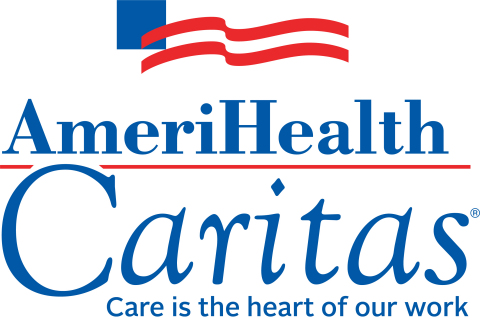AmeriHealth Caritas: Ongoing Demands of Caregiving Can Lead to Chronic Stress, Health Problems
AmeriHealth Caritas: Ongoing Demands of Caregiving Can Lead to Chronic Stress, Health Problems
COVID-19 has increased responsibilities and concerns for caregivers during the pandemic
PHILADELPHIA--(BUSINESS WIRE)--Growth of the retirement population, along with the simultaneous decline in the numbers of young people to care for them, has quietly evolved into a national caregiver crisis. Additionally, this crisis is being exacerbated by a global pandemic that has disproportionately affected older people — many of whom may have preexisting conditions — and puts those who care for them in harm’s way.
Dr. Bernard Cohen, a long-term services and supports (LTSS) medical officer for AmeriHealth Caritas, a national leader in Medicaid managed care, recommends families have the uncomfortable discussion about the responsibilities of providing care to for an ailing family member before he/she becomes unable to care for themselves.
“It can be incredibly stressful providing care for a parent who may have Alzheimer’s or Parkinson’s disease,” said Dr. Cohen. “For low-income workers who are also raising their own children and – in some cases – grandchildren too, the stress can be overwhelming and affect their own mental and physical health.”
A recent poll from the Associated Press and the non-partisan and objective research organization NORC at the University of Chicago reports that 17% Americans say they are providing ongoing caregiving. About 10% of those surveyed reported providing care for a loved one since the virus outbreak, and about half of those say they are providing care specifically because of the pandemic.1
Some caregivers may be suffering from high levels of stress, anxiety and depression and should be screened for these conditions, reports the American Psychological Association (APA). A report by APA show that “caregivers report higher levels, poorer health, and a greater tendency to engage in unhealthy behaviors to alleviate their stress.”
According to the U.S. Department of Labor Department, about 15% of women and 13% of men 25 to 54 years-old spend time caring for an older relative. Among those 55 and 64 years-old, 20% of those providing eldercare also have children at home.2
Dr. Cohen said few caregivers are prepared for the mental, emotional, and physical demands of caring for a chronically ill or disabled relative.
For caregivers who work full-time, the financial burden associated with caring for multiple generations of family members often prevent them from achieving financial independence.
“Assisted living facilities are often cost prohibitive for many families of modest means,” Dr. Cohen said. “In addition to training, we should provide adequate compensation to caregivers who provide care for elderly relatives which enable them to remain in their homes as long as they are able.”
AmeriHealth Caritas recently launched a program to support and empower informal caregivers of Medicaid members with disabilities and LTSS needs. To learn more about this new digital health platform, please click HERE.
About AmeriHealth Caritas
AmeriHealth Caritas is one of the nation’s leaders in health care solutions for those most in need. Operating in 12 states and the District of Columbia, AmeriHealth Caritas serves approximately 5 million Medicaid, Medicare, and Children’s Health Insurance Program (CHIP) members through its integrated managed care products, pharmaceutical benefit management and specialty pharmacy services, and behavioral health services. Headquartered in Philadelphia, AmeriHealth Caritas is a mission-driven organization with more than 35 years of experience serving low-income and chronically ill populations. For more information, visit www.amerihealthcaritas.com.
REFERENCE
1 AP-NORC Center for Public Affairs Research. (October, 2020). “Growing Older in America: Aging and Family Caregiving during COVID-19.” https://apnorc.org/projects/growing-older-in-america-aging-and-family-caregiving-during-covid-19/
2 Unpaid Eldercare in the United States – 2015-16: Data from the American Time Use Survey. https://www.bls.gov/news.release/pdf/elcare.pdf
Contacts
Derrick Stokes
Tel: 1-267-229-0019
dstokes1@amerihealthcaritas.com
